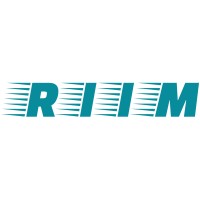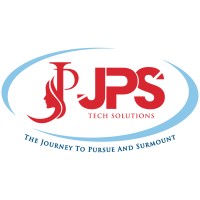

MLOps Engineer
⭐ - Featured Role | Apply direct with Data Freelance Hub
🌎 - Country
United States
💱 - Currency
$ USD
-
💰 - Day rate
-
🗓️ - Date discovered
September 9, 2025
🕒 - Project duration
Unknown
-
🏝️ - Location type
Unknown
-
📄 - Contract type
Unknown
-
🔒 - Security clearance
Unknown
-
📍 - Location detailed
Mountain View, CA
-
🧠 - Skills detailed
#SQL (Structured Query Language) #Clustering #Regression #AWS SageMaker #NumPy #GIT #Model Evaluation #Data Processing #AWS (Amazon Web Services) #Spark (Apache Spark) #ML (Machine Learning) #Scala #Java #Python #Cloud #SageMaker #Pandas #Distributed Computing #Airflow #Version Control #Keras #Apache Airflow #Docker #Computer Science #Data Science #Kubernetes #TensorFlow #NLTK (Natural Language Toolkit) #GitHub #A/B Testing #Classification #DevOps
Role description
• BS, MS, or PhD degree in Computer Science or a related field, or equivalent practical experience.
• 3 to 5 year of experience and Hands-on with Languages : Scala, Java , Python
• Strong computer science fundamentals: data structures, algorithms, performance complexity, and implications of computer architecture on software performance (e.g., I/O and memory tuning).
• Solid software engineering fundamentals: experience with version control systems (Git, GitHub) and workflows, and the ability to write production-ready code.
• Knowledge of Machine Learning or Data Science languages, tools, and frameworks, including SQL, Scikit-learn, NLTK, NumPy, Pandas, TensorFlow, and Keras.
• Understanding of machine learning techniques (e.g., classification, regression, clustering) and principles (e.g., training, validation, and testing).
• Experience with data processing tools and distributed computing systems and related technologies such as Spark, Hive, and Flink.
• Familiarity with cloud technologies, including AWS SageMaker tools and AWS Bedrock.
• Understanding of DevOps concepts, including CI/CD.
• Experience with software container technology, such as Docker and Kubernetes.
• In-depth knowledge of MLOps principles and tools for model lifecycle management, including experiment tracking, model registry, and serving infrastructure.
• Experience with workflow orchestration tools (e.g., Apache Airflow, Kubeflow Pipelines).
• Familiarity with model explainability (XAI) and fairness techniques.
• Proficiency in optimizing machine learning models for performance, efficiency, and resource utilization.
• Experience with A/B testing frameworks and statistical analysis for model evaluation.
• BS, MS, or PhD degree in Computer Science or a related field, or equivalent practical experience.
• 3 to 5 year of experience and Hands-on with Languages : Scala, Java , Python
• Strong computer science fundamentals: data structures, algorithms, performance complexity, and implications of computer architecture on software performance (e.g., I/O and memory tuning).
• Solid software engineering fundamentals: experience with version control systems (Git, GitHub) and workflows, and the ability to write production-ready code.
• Knowledge of Machine Learning or Data Science languages, tools, and frameworks, including SQL, Scikit-learn, NLTK, NumPy, Pandas, TensorFlow, and Keras.
• Understanding of machine learning techniques (e.g., classification, regression, clustering) and principles (e.g., training, validation, and testing).
• Experience with data processing tools and distributed computing systems and related technologies such as Spark, Hive, and Flink.
• Familiarity with cloud technologies, including AWS SageMaker tools and AWS Bedrock.
• Understanding of DevOps concepts, including CI/CD.
• Experience with software container technology, such as Docker and Kubernetes.
• In-depth knowledge of MLOps principles and tools for model lifecycle management, including experiment tracking, model registry, and serving infrastructure.
• Experience with workflow orchestration tools (e.g., Apache Airflow, Kubeflow Pipelines).
• Familiarity with model explainability (XAI) and fairness techniques.
• Proficiency in optimizing machine learning models for performance, efficiency, and resource utilization.
• Experience with A/B testing frameworks and statistical analysis for model evaluation.





